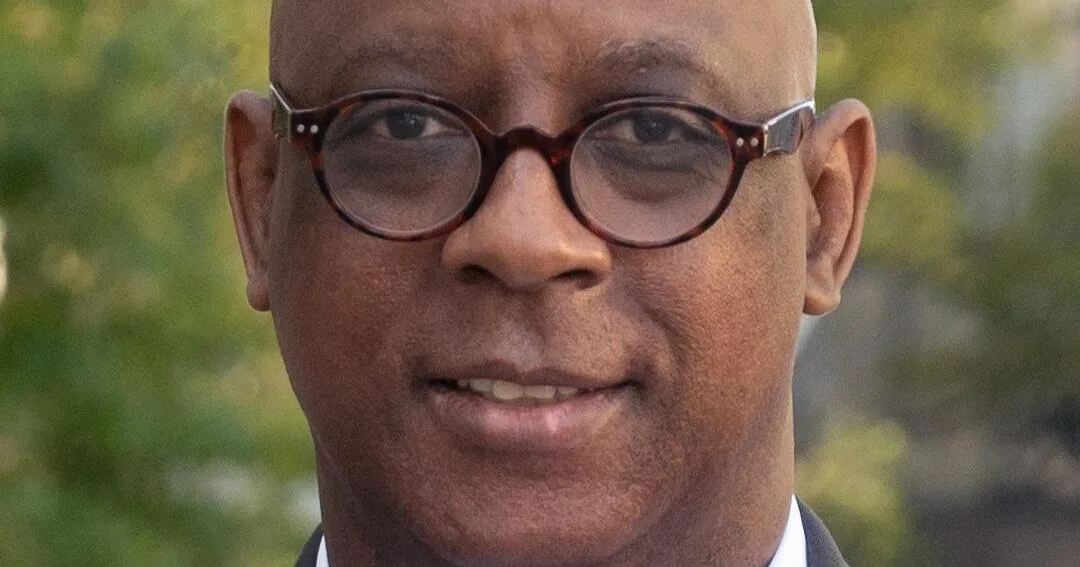
Perry Sholes has been board chair of the New Orleans Regional Black Chamber of Commerce during turbulent times.
The seasoned human resources executive took over the role in January 2021, right in the middle of the COVID-19 pandemic when businesses were dealing with unprecedented upheaval, especially for their employees.
Founded in 2006 to facilitate networking and other business development opportunities for Black-owned businesses, the nonprofit chamber had also seen a quick succession of executive directors before Sholes arrived. Then early last year, the board’s executive director pick under his chairmanship ran into legal troubles just a few months into the job and had to part ways.
Now, as he prepares to hand over the chamber chair to branding expert Jolie Bernard, Sholes said he is hoping for a drama-free period of stability at the organization. He said a new executive director has been lined up and will be announced in the new year.
A New Orleans native, Sholes rose through the management ranks at fast food operators, including a stint as head of human relations for Raising Cane’s. His experience also includes domestic and international roles at big fast-moving consumer goods companies, including Kraft Foods and RJR Nabisco.
As a continuing member of the chamber board, Sholes said his focus is on developing new talent among aspiring Black business people and promoting programs that create opportunities for them.
Interview has been edited for length and clarity.
First, for those unfamiliar with the work of an organization like NORBCC, what are the priorities for your membership and the Black business community more generally?
The priorities are around access to contracts, access to grants, equity in contracting, representation. Those kinds of things would be the policy stuff. Black-owned businesses also suffer the same impact on the cost of things like insurances, though some Black-owned businesses can suffer more to the extent that there’s anything going on with ZIP codes. But we’ve seen some positive change. For example, this year (state Rep.) Delisha Boyd was able to get a bill passed around contracting and set-aside percentages of contracts that should go to minority businesses (Act 230 in the 2023 legislative session). We just need more of that.
How has the environment changed in New Orleans for Black-owned businesses since you first started out in the 1980s?
I grew up in the St. Bernard Projects and Gert Town so I’m part of that lower socio-economic group in the city and went to public school my entire life. I didn’t have a particular sense of business life here at that time. But when I go back and I think about McDonald’s, when they did franchise the New Orleans market, there were a lot of managers or supervisors who were African American. Many of them then became franchise owners which then was a wealth transfer. You still see now families of those original owners who still own pieces of the market. After Hurricane Katrina, I was personally driven to be back home to be part of the redevelopment of my business, the HR community, the Black Chamber and then through the internship program Young Talent of Color.
Talk a bit about how that internship program worked at NORBCC.
Through the Black Chamber, we solicited for businesses that needed help with marketing. We had 13 applicants and we selected one of those businesses. We had seven college teams that did a case analysis and pitched to a panel of judges who picked a winner. The winner was Nicholls State University. They won $500 funded by the Career Immersion and Leadership Institute. It’s a way to connect colleges to businesses — in that case Peace of Serenity Spa, a wellness business on the West Bank — so they can get a variety of marketing ideas.
What are you hoping for CILI in the future, how are you looking for it to develop?
We’re working on trying to get college students experience in a professional environment before they graduate. The relationship with the Black Chamber has opened up doors to allow students of color to get internship and job opportunities in small Black-owned and Latin-owned and minority-owned businesses in general. The first class started in 2021, so we’re in our third cohort right now and interviewing for our fourth. In the first three cohorts, we’ve had about 109 through the fellowship program. We’re all about trying to help first-generation students who typically don’t have the connections. Our organization is about getting them connected.


